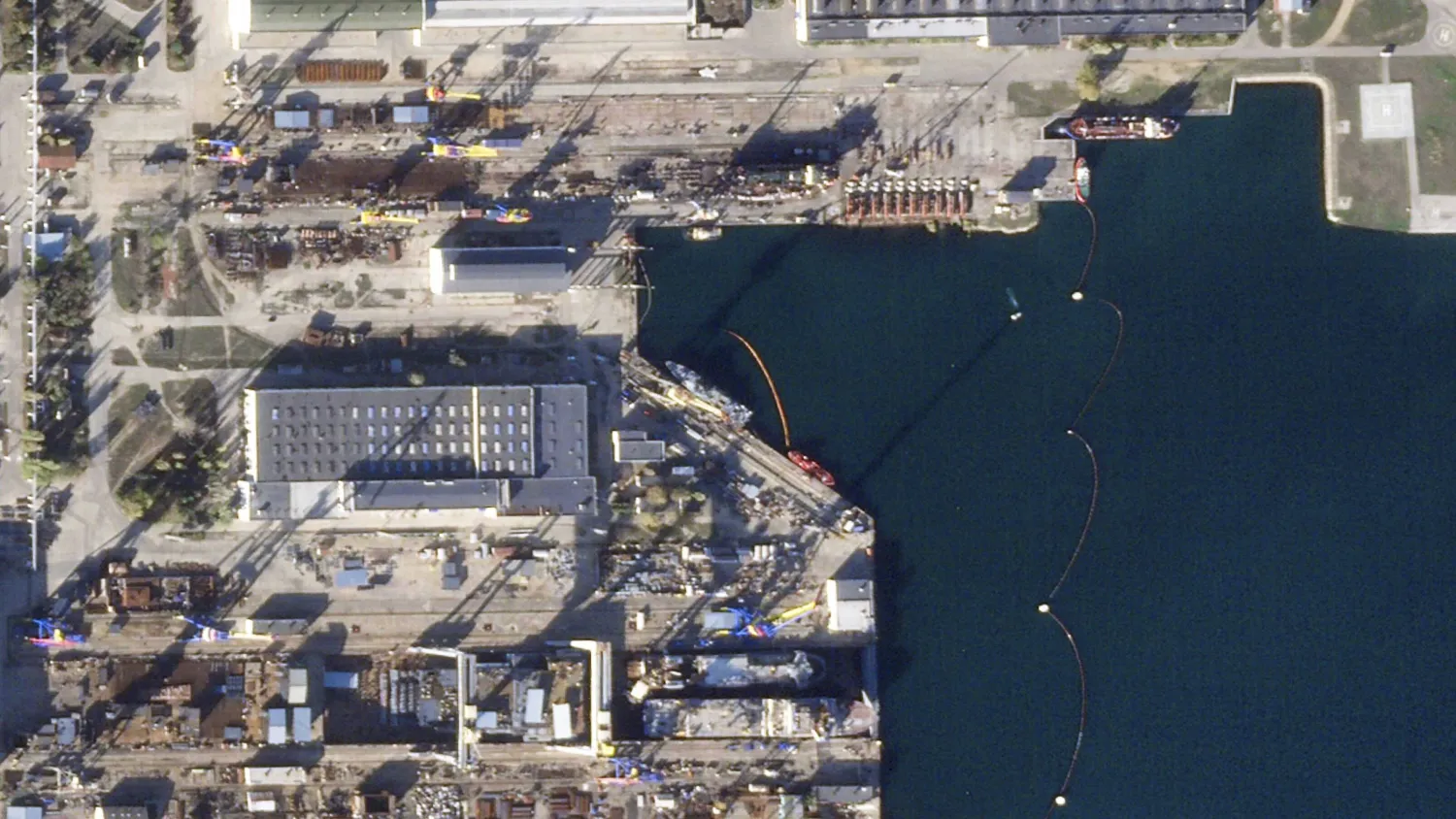Ukrainian naval drones sank two small Russian landing boats in Crimea, Ukraine's military intelligence agency said on Friday, while troops braced for further Russian assaults in the east, particularly the shattered town of Avdiivka.
Reuters could not independently verify the report of the attack on Vuzka Bay in the west of Crimea, which one Ukrainian military analyst said was a significant strike and loss for Russia.
There was no immediate comment by Russia, which seized and annexed the Crimea peninsula from Ukraine in 2014 and whose Black Sea Fleet is headquartered in the Crimean city of Sevastopol.
An initial report from Ukraine's military intelligence said the two small, amphibious Russian ships had been hit overnight.
A Friday evening update said the attack had been carried out by naval drones. It identified one landing craft as an Akula class vessel, the other a Serna class.
"The results of intelligence conducted on 10th November 2023 near Vuzka Bay in temporarily occupied Crimea show that after an attack by naval drones, two small Russian landing ships have been destroyed," the report said.
"As a consequence of the attack, both vessels went to the bottom, the Akula straight away and the Serna after attempts to save it."
The Ukrainian military said the vessels were crewed, and loaded with armored vehicles.
"Boats like this are quite a significant loss ...," Andriy Ryzhenko, military analyst and reserve officer, told Radio NV.
"They allowed for the transport of a tactical landing force and equipment relatively inconspicuously."
President Volodymyr Zelenskiy says attacks on naval targets have dented Moscow's military strength in the area. Ukraine says some Russian vessels have left Sevastopol.
In eastern Ukraine, officials in Avdiivka, under Russian fire since mid-October, expected a new attempt to advance on the town once the ground dries from several days of heavy rain.
"Things are just as hot as they always were. The enemy is firing round the clock within the city and around our positions," Vitaliy Barabash, head of Avdiivka's military administration, told public broadcaster Suspilne.
Barabash said greater numbers of 1,500 remaining residents in what was once a city of 32,000 were preparing to evacuate. Russian forces had begun using drones to spot and fire on smoke from makeshift stoves as the weather turned colder, he said.
Military analyst Serhiy Zgurets, writing on the website of Espreso TV, said Russian forces sought to exploit Ukraine's focus on Avdiivka by attempting to retake areas they had lost near Bakhmut to the northeast. Russian forces seized Bakhmut in May, but Ukrainian troops have since retaken nearby villages.
Russia began its full-scale invasion of Ukraine in February 2022. Ukraine began a counteroffensive in the south and east in early June, but has encountered strong resistance.
Russia's Defense Minister said early on Saturday its anti-aircraft units had downed Ukrainian drones over Moscow Region and near Smolensk, near the border with Belarus.
Unofficial Russian telegram channel Baza reported a drone had been downed near a machine plant in Kolomna, 100 km (60 miles) southeast of Moscow and posted a picture of what it said was a fire at an explosives plant in Kotovsk, further southeast.









